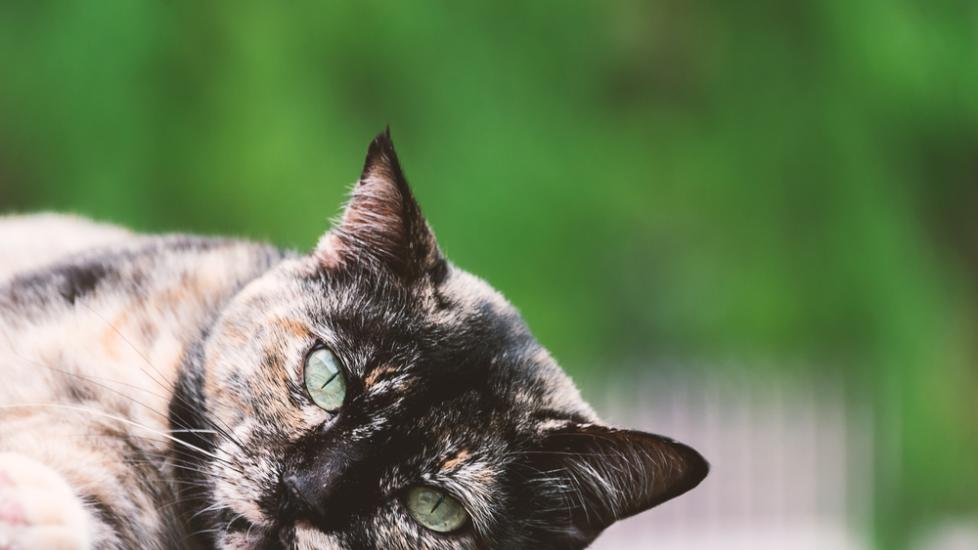Living with an Arthritic Senior Cat
Living with a senior cat has rewards as well as challenges that are a bit different than those encountered when living with a younger cat. Pain is, of course, something we don’t want to see in any of our pets. However, senior cats are more likely to develop conditions and illnesses that create pain and discomfort.
Arthritis is a common but often unrecognized disorder in older cats. In one study, 90 percent of cats over 12 years of age showed radiographic (X-ray) evidence of arthritis.
Unfortunately, recognizing arthritis in cats is challenging at best. Many of our cats hide their pain very effectively. While we may sometimes see our older cat limping or favoring one leg or another, more often than not our arthritic cats simply become less active. They spend more time sleeping and resting. They may be reluctant to jump onto surfaces that were easily accessible previously.
In fact, many of us mistake these symptoms of arthritis for normal aging. Too often, we simply assume that it’s normal for an older cat to sleep more and be less active without ever wondering whether pain may be playing a part. We may even assume that our arthritic cat is learning manners or displaying better behavior because he no longer jumps onto the countertops.
What should we do about this? Firstly and most importantly, if in doubt about whether your cat is hurting, assume that he is and take appropriate measures.
- Joint supplements containing glucosamine and/or chondroitin can help some cats.
- Omega-3 fatty acids can help relieve pain from arthritis and other causes.
- Adequan is an injectable product that can be used to help relieve arthritis pain and is effective for many cats.
- Other medications are available to help relieve your cat’s pain as well, and may be necessary if the previous products are ineffective or do not sufficiently relieve your cat’s pain. These include tramadol, gabapentin, Fentanyl, and others. Your veterinarian will help you determine which medication is best suited for your cat.
- For some cats, alternative therapies such as acupuncture, hydrotherapy, and even massage can help ease the pain of arthritis.
- Weight loss, if appropriate, can help relieve stress and pressure on sensitive joints and help make arthritic cats more comfortable. Consult your veterinarian to establish a safe and effective weight loss plan for your overweight arthritic cat.
- Exercise can also keep joints and muscles supple. Exercise can also be effective in burning calories and helping with weight loss where necessary.
- Provide your cat with soft bedding in the form of a pet bed or blanket on which to sleep and/or rest.
- Make sure your cat’s litter box is in an easily accessible location and is easy for your cat to enter and exit. Do not place your cat’s only litter box in a basement or attic far from where your cat spends most of his time. Consider using a litter box with low sides for easy access.
Though arthritis is not a curable condition, the pain it causes can be controlled. However, the first step is recognizing that it exists. Do you have a senior cat that could be suffering from arthritis?

Dr. Lorie Huston
Source:
Hardie EM, Roe SC, Martin FR. Radiographic evidence of degenerative joint disease in geriatric cats: 100 cases (1994-1997). J Am Vet Med Assoc2002;220:628-632.
Image: Polianskyi Igor / via Shutterstock
